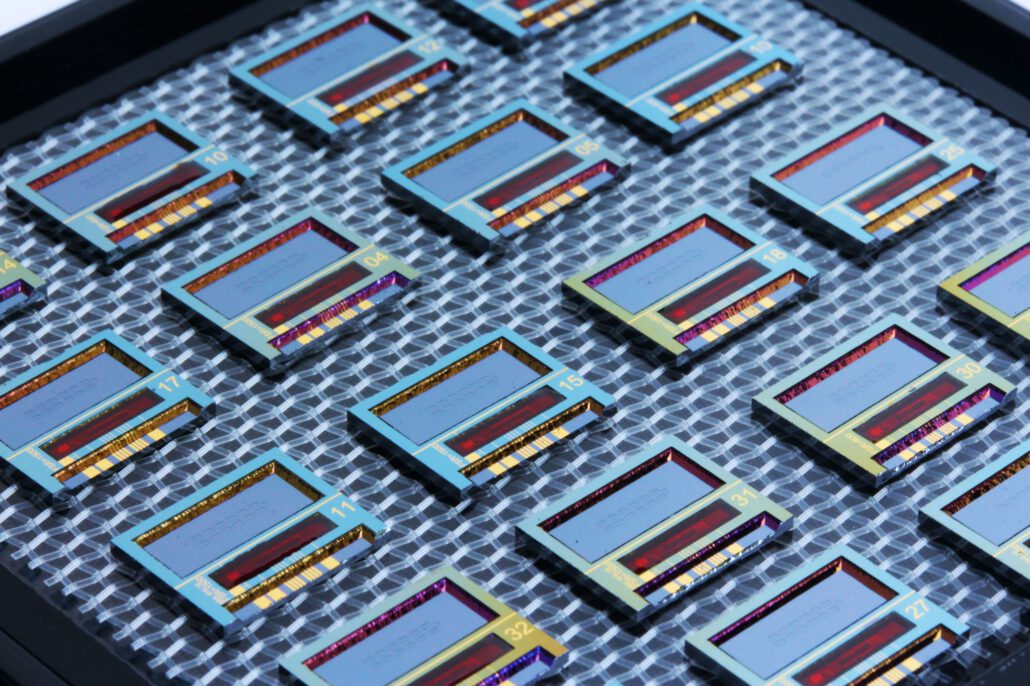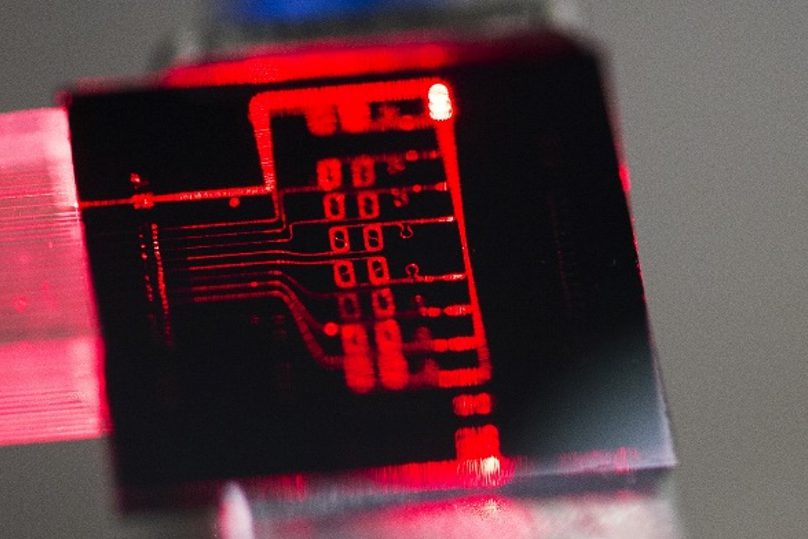Photonic Biosensors
The Covid-19 pandemic underlined the need for fast, reliable point-of-care diagnostics. In applications where testing sensitivity and speed matter, photonic biosensors offer a cost-effective solution that does not rely on central laboratory facilities or specially trained technicians.
Photonic biosensing responds to the need to decentralize testing to save time and reduce reliance on overburdened services. This is especially valuable as demand increases with the rise of personalized medicine. Furthermore, an increase in pressure on primary care diagnostics, increasing reliance on sensing in rapid drug development, lab-on-a -chip (LoC) and organ on a chip (OoC) applications, are also driving the development of compact biosensors. More applications lie outside of the domain of human health, in agriculture, aquaculture and environmental testing.
Photonic biosensors combine the sensitivity and speed of photonic sensing with bio recognition elements to enable label-free rapid testing in a compact chip. Since the underlying photonic technology can be functionalized with a wide range of bio recognition agents, photonic biosensors can detect an unrivalled range of biological agents ranging from DNA, proteins and cells to environmental pollutants and food contaminants.
Individual biosensor chips showing the sensing window, integrated light source and electrical interfaces.
Strengths of integrated photonic biosensors
Photonic integrated circuit (PIC) technology enables compact point of use instruments based on consumable test cartridges. The benefits of using PICs in biosensing include:
Sensitivity comparable with lab-based tests: Harness the precision of light-based detection methods to detect concentrations down to atomolar levels of concentration.
Multiplexing for specificity and sensitivity: Target specific combinations of analytes for greater application specificity and sensitivity using easily reproduced building blocks. Combining photonic building blocks to make sensors with different biofunctionalized sensing areas is easy.
Fast and label free: On-chip sample handling and integrated interfaces and readout technology remove the need for specialist laboratories and sample preparation steps. Get results in minutes.
Volume/cost scalable: Integrated photonics benefit from similar bulk fabrication steps to electronic integrated circuits. Scaling to high volume and low costs is straight-forward.
100 x more sensitivity with next-generation photonic biosensors
With photonic sensor building-blocks that offer up to a hundred times more sensitivity that the next best chip based photonic technology, the LioniX International biochip is a powerful platform with a tiny footprint.
Photonic transducers pick up on tiny changes in refractive index that arise when target molecules interact with a biofunctionized coating on the sensor.
Our extra-sensitive chips make use of novel interferometric components called asymmetric Mach Zehnder Interferometers (aMZIs) – used in biosensing for the first time by LioniX International.
An array of 8 aMZI building-blocks showing the spiraled waveguides that provide the sensing area to be functionalized
aMZI biosensor benefits
- Most sensitive chip-based transducer – detects changes in refractive index down to 2 x 10-8 RIU
- Overcomes inherent sensitivity limits in other sensing components (i.e. ring resonators) with no theoretical limit to functionalized sensor area available.
- Inherently low noise – integrated signal reference cancels out noise from environmental effects.
Interdisciplinary expertise for full biosensor solutions
Working with our Biosensing partners Surfix Diagnostics BV and Qurin Diagnostics BV, we bring together expertise form photonics, biochemistry and diagnostics to create instruments that add value in existing applications and address new biosensing challenges.
For the platform developed with Surfix, we drew on expertise in photonics with electronics, optofluidics, packaging and instrument design. This approach enabled us to develop modules that help Surfix directly address ease-of-use, test reliability, robustness and volume manufacturability.
See also: Read the case study on our approach to biosensor development
Dutch ecosystem support for new biosensor applications
The Dutch biosensing ecosystem, in which LioniX International is a key player, provides the financial, technical and strategic support required to develop new biosensing technologies. With a network of multidisciplinary experts lobbying for the commercialization of rapidly emerging Dutch expertise, there has never been a better time to develop new applications.
A recent €8.5 million investment in the LioniX International biochip technology by a consortia of partners and the publication of a strategic roadmap for the biosensing sector by Dutch industry accelerator PhotonDelta, underline the commitment and support that exists within the sector.


